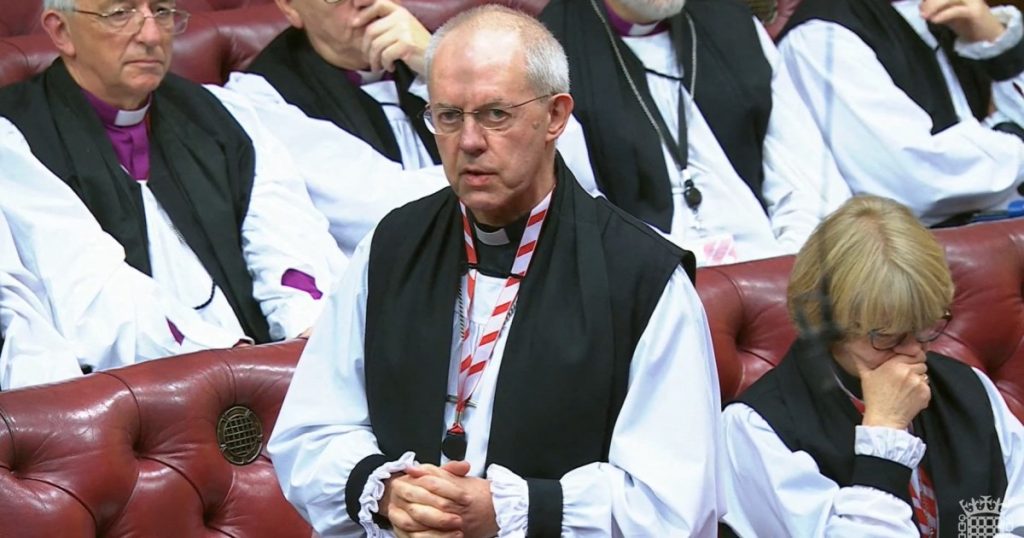The Church of England is grappling with a deeply unsettling legacy of abuse, particularly in Africa, highlighted by the resignation of Archbishop Justin Welby. Welby’s departure stems from an independent review that exposed his failure to report John Smyth, a barrister who subjected over 100 boys and young men to physical, sexual, and psychological abuse over four decades. Smyth operated within Church of England-affiliated summer camps in England, South Africa, and Zimbabwe, perpetuating his crimes with impunity until his death in 2018. The review revealed a disturbing pattern of cover-ups within the Church, allowing Smyth to evade accountability and continue his predatory behavior across continents. As early as 1982, the Church was aware of Smyth’s actions in England, yet he was merely encouraged to leave the country for Zimbabwe, effectively exporting the abuse. This dereliction of duty facilitated further victimization of at least 80 boys in Zimbabwean camps during the 1990s. One particularly egregious case involves the suspicious drowning of a 16-year-old boy, Guide Nyachure, in 1992. Though Smyth faced initial charges, the case was inexplicably dropped, allowing him to relocate to South Africa, unpunished and free to potentially continue his abusive pattern.
Smyth’s case is tragically not an isolated incident but rather indicative of a broader, systemic issue of clergy abuse within Zimbabwe. During the period of Smyth’s activity, similar allegations plagued various religious settings. Whispers and rumors of abuse within Catholic boarding schools, specifically those run by Jesuits, circulated but were rarely addressed openly. This silence allowed a culture of impunity to flourish, leaving countless young boys vulnerable to predation. The extent of this abuse became clearer through research conducted for a novel exploring this very subject. Interviews with former students of Jesuit schools, including St. Ignatius, St. George’s, and Kutama, revealed harrowing accounts of abuse inflicted upon vulnerable children. These accounts mirrored the Smyth case, with the Catholic Church similarly shifting accused priests between locations, effectively shielding them from prosecution and perpetuating the cycle of abuse.
The recurring pattern of abuse and institutional cover-up demands a thorough reckoning within both the Anglican and Catholic churches in Africa. The case of James Chaning-Pearce serves as a stark example. Convicted in England for indecent assault against boys at a Jesuit school, his apprehension only occurred due to the efforts of a former Zimbabwean student who recognized him and alerted authorities in Australia. Chaning-Pearce’s conviction in England, however, did not address the abuse allegations stemming from his time in Zimbabwe, leaving a void of justice for his victims there. This highlights a critical need for independent investigations into historical abuse within these institutions, ensuring accountability and offering a measure of closure to survivors in Africa. These investigations must not be confined solely to individual perpetrators but must also examine the systemic failures that enabled and concealed their actions.
The profound impact of clergy abuse on young lives, particularly within the context of Zimbabwean Catholic schools, cannot be overstated. These elite institutions, often seen as gateways to opportunity for bright children from impoverished backgrounds, were instead sites of trauma for many. The betrayal of trust and the devastating consequences of abuse inflicted upon these vulnerable children underscore the urgent need for action. The Church must move beyond acknowledgements and apologies to concrete steps that demonstrate a true commitment to justice and healing. This includes not only holding perpetrators accountable but also providing comprehensive support for survivors and implementing robust safeguards to prevent future abuse.
While the resignations of Archbishop Welby and Pope Francis’s acknowledgement of the Church’s failings are significant steps, they are merely the beginning. The promises of reform and commitment to safeguarding children must translate into tangible actions that prioritize the needs of survivors. This requires a shift away from prioritizing the experiences of Western victims and extending the same level of concern and action to survivors in Africa. Ignoring the plight of African victims would perpetuate a deeply damaging inequality, suggesting that their suffering is less significant. A genuine commitment to justice demands equal consideration and support for all survivors, regardless of their background or location.
The call for a reckoning is not simply about punishing perpetrators; it’s about dismantling the systems that allowed abuse to flourish. This involves fostering transparency, promoting accountability, and empowering survivors to share their stories without fear of retribution or dismissal. True healing and reconciliation within the Church and the wider community require a comprehensive approach that addresses both the individual and institutional dimensions of this pervasive issue. Only through such a commitment can the Church begin to rebuild trust and ensure that the safety and well-being of children are truly prioritized. The legacy of abuse must not be allowed to continue; instead, it must serve as a catalyst for profound and lasting change.

